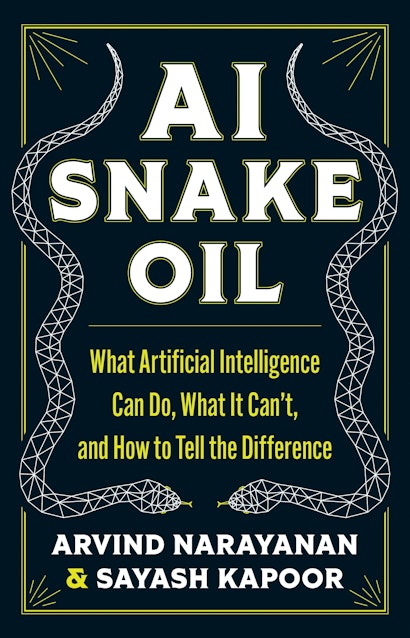 As educators, we constantly strive to equip our students with the tools they need to navigate an increasingly complex world. One of the most significant challenges facing us today is the rise of Artificial Intelligence (AI) and its pervasive influence across various aspects of life. It’s crucial that we, as teachers, not only understand AI ourselves but also empower our students to critically evaluate its promises and pitfalls.
As educators, we constantly strive to equip our students with the tools they need to navigate an increasingly complex world. One of the most significant challenges facing us today is the rise of Artificial Intelligence (AI) and its pervasive influence across various aspects of life. It’s crucial that we, as teachers, not only understand AI ourselves but also empower our students to critically evaluate its promises and pitfalls.
The book AI Snake Oil by Arvind Narayanan and Sayash Kapoor provides a valuable framework for approaching this challenge. It resonates with the principles of effective teaching by breaking down complex AI concepts into digestible pieces. Just as we guide our students through intricate subjects step-by-step, this book demystifies AI, enabling readers to grasp its true capabilities and limitations at their own pace.
Here’s why I believe this book is relevant for educators:
● Exposing the Hype: The book debunks the exaggerated claims surrounding AI, similar to how we address misconceptions in the classroom. By distinguishing genuine advancements from misleading hype, it encourages a critical lens, much like we encourage our students to question and analyze information.
● Practical Applications and Ethical Implications: “AI Snake Oil” explores the real-world applications of AI in fields like education, medicine, and criminal justice. It also sheds light on the ethical dilemmas associated with AI, such as bias and privacy concerns. This aligns with our role as educators to prepare students for the ethical challenges they’ll face in an AI-driven world.
● Empowering Informed Decision-Making: Just as we aim to equip our students with the knowledge to make sound decisions, the book advocates for a nuanced understanding of AI. It encourages readers to move beyond the surface-level promises and consider the potential risks and limitations. This resonates with the critical thinking skills we strive to cultivate in our students.
Incorporating the insights from AI Snake Oil into our teaching can help us foster AI literacy among our students. By equipping them with the ability to discern fact from fiction, analyze ethical implications, and make informed decisions about AI, we can empower them to navigate the future with confidence and responsibility.